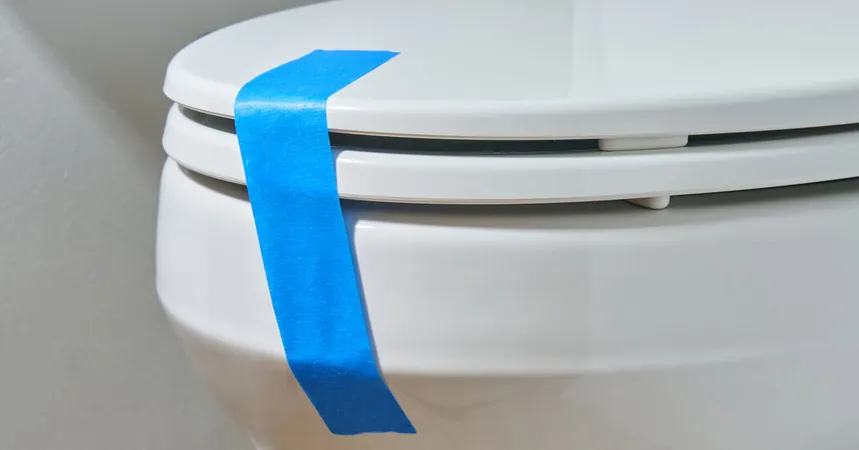
Is Peeing ‘Just in Case’ Harming Your Bladder Health?
2025-06-07
Author: Ling
The Truth Behind the ‘Just in Case’ Bathroom Break
We’ve all been taught to use the bathroom before leaving home or whenever it's conveniently located. It makes sense for kids, who often hold on too long. But is this practice actually doing more harm than good for adults? Urologists now offer a fresh perspective.
What Is Proactive Voiding?
Known as 'convenience' or 'proactive' voiding, this practice is common among people of all ages. However, a urologist's recent warning suggests that frequently going to the bathroom without a pressing need can lead to issues.
The Risks of Frequent Bathroom Breaks
Dr. Ariana Smith, a renowned urology professor at the University of Pennsylvania, clarifies that an occasional ‘just in case’ bathroom visit is harmless. Yet, habitual use could threaten your bladder health, disrupting the natural communication between your bladder and brain.
Understanding Bladder Function
Understanding how your bladder works is crucial. Your kidneys filter blood, producing urine stored in your bladder. On average, women can hold about 500 milliliters (two cups), while men can manage nearly 700 milliliters (three cups). The urge to go typically arises when your bladder fills to about 150-250 milliliters.
How Ineffective Urination Impacts You
Interestingly, if you frequently pee before reaching that urge, you risk retraining your bladder to signal for relief prematurely. This can lead to discomfort when you need to wait for the restroom, explains Dr. Smith.
Potential Consequences for Your Pelvic Floor
Frequent unnecessary urination can also place strain on pelvic floor muscles, vital for bladder support. Professor Kathryn Burgio from the University of Alabama stresses that this could lead to pelvic weakness over time and may develop into an overactive bladder—a condition characterized by urgent, often uncontrollable urges to urinate.
Breaking the Habit of Overactive Voiding
So, can you break the habit? Definitely! Studies show that mental control plays a significant role in bladder function. Dr. Alayne Markland suggests using techniques like deep breathing or self-affirmations to regain control.
Tips to Manage Bladder Health
For those already experiencing bladder-related issues, consider working with a pelvic floor therapist. These specialists can help strengthen your pelvic floor, giving you better control over your bladder urges. Simple techniques like deep breathing and muscle engagement can significantly calm your bladder.
Look Closely at Your Diet
Additionally, be mindful of your fluid intake. Certain beverages—think caffeine, alcohol, and acidic drinks—can irritate your bladder. Cutting back on caffeine, in particular, has been universally acknowledged as beneficial in reducing urges and accidents. It's time to take control of your bladder health!




 Brasil (PT)
Brasil (PT)
 Canada (EN)
Canada (EN)
 Chile (ES)
Chile (ES)
 Česko (CS)
Česko (CS)
 대한민국 (KO)
대한민국 (KO)
 España (ES)
España (ES)
 France (FR)
France (FR)
 Hong Kong (EN)
Hong Kong (EN)
 Italia (IT)
Italia (IT)
 日本 (JA)
日本 (JA)
 Magyarország (HU)
Magyarország (HU)
 Norge (NO)
Norge (NO)
 Polska (PL)
Polska (PL)
 Schweiz (DE)
Schweiz (DE)
 Singapore (EN)
Singapore (EN)
 Sverige (SV)
Sverige (SV)
 Suomi (FI)
Suomi (FI)
 Türkiye (TR)
Türkiye (TR)
 الإمارات العربية المتحدة (AR)
الإمارات العربية المتحدة (AR)